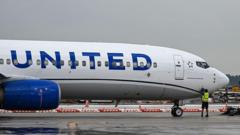Travelers at Heathrow Airport are grappling with further delays following a cyber-attack that disabled essential software for check-in and baggage handling. The disruption has extended into a second day, affecting operations at multiple European airports.
On Saturday, the attack caused hundreds of delays, forcing airlines to revert to manual check-in methods. As a result, passengers were seen lining up for hours. Heathrow acknowledged a large number of departing flights were delayed, with reports indicating up to 47% of flights affected according to FlightAware.
Brussels Airport, also impacted, advised airlines to cancel half of their scheduled flights, and warned travelers of continued manual check-in processes on Sunday amid an uncertain timeline for system recovery. While some airlines like British Airways managed to operate with backup systems, others faced significant operational hurdles.
RTX, owner of the software provider Collins Aerospace, confirmed the cyber-related disruption and is working to resolve the issue. The affected technology includes the Muse software designed to enable multiple airlines to share check-in desks and boarding gates.
Passengers have reported significant wait times, some exceeding two hours, with many missing connecting flights due to ongoing delays. Staff have been deployed to help manage the situation, but frustration is palpable among travelers.
The UK's National Cyber Security Centre is collaborating with stakeholders to assess the impact and address the situation. As airports scramble to restore normalcy, this incident underscores the vulnerabilities within the aviation industry's reliance on digital systems.



















